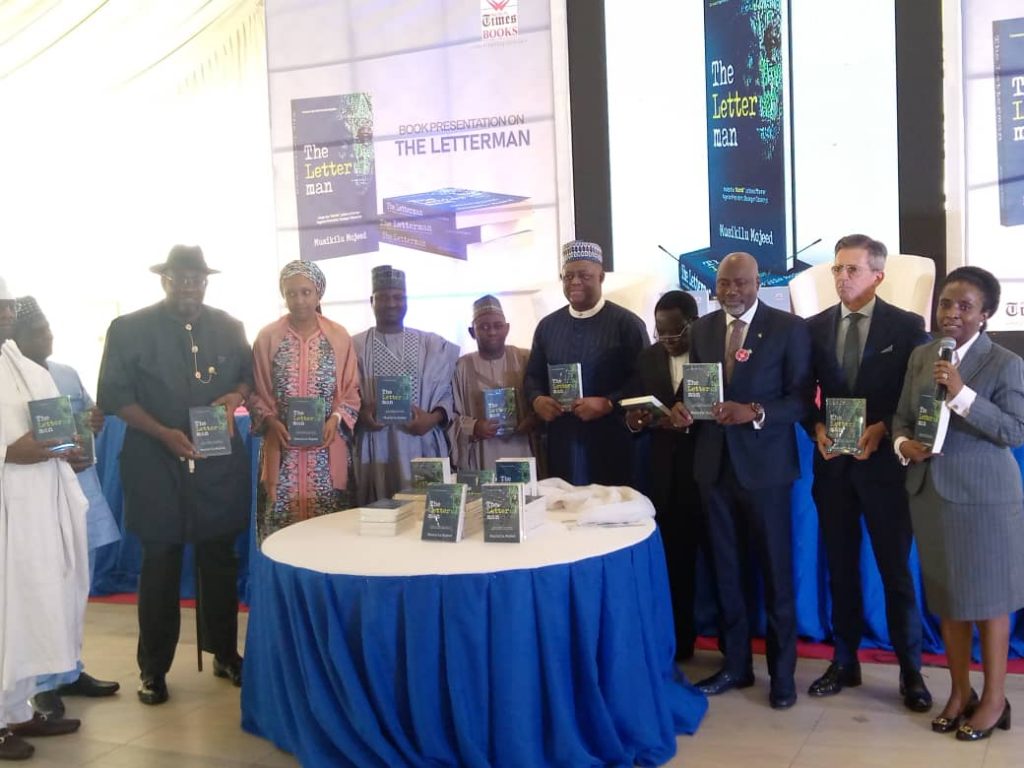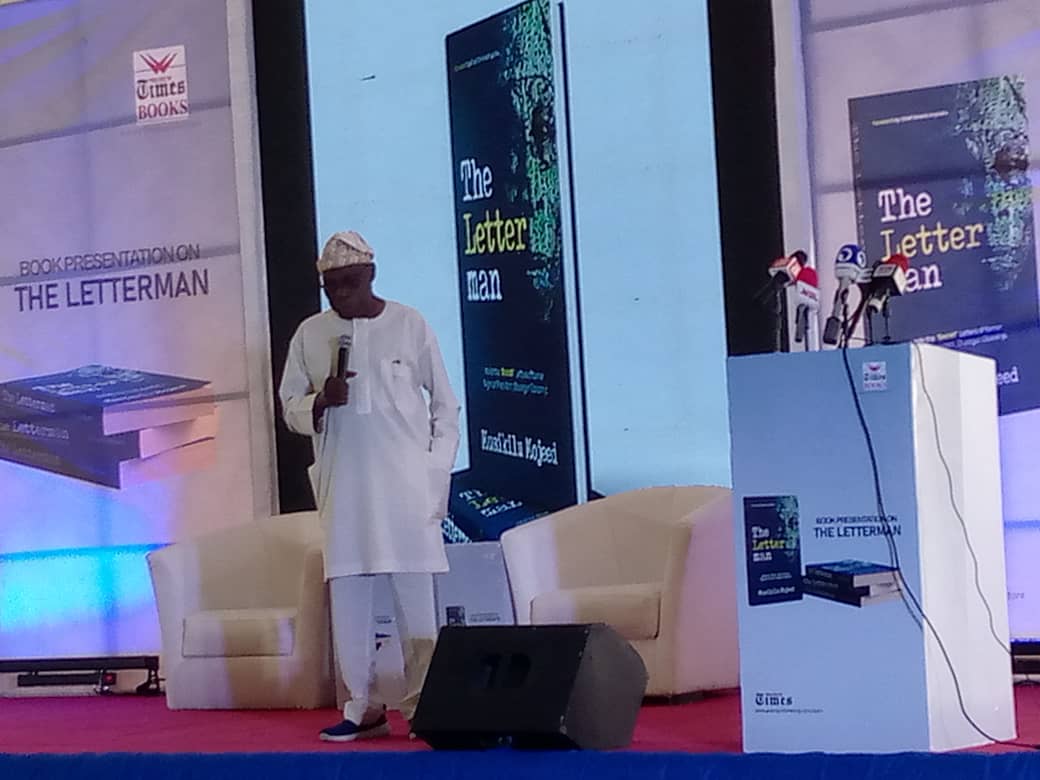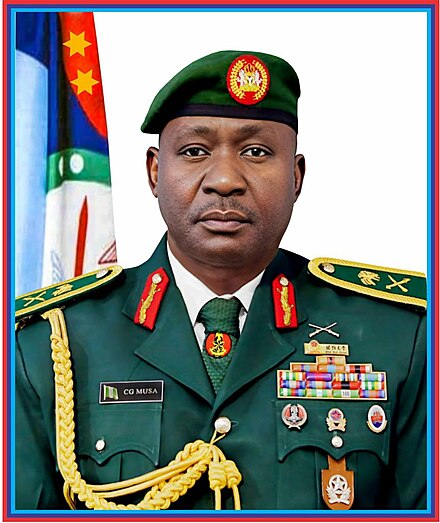By Chimezie Godfrey
Former President Olusegun Obasanjo has advised leaders and all Nigerians to leave a legacy of selfless service that would live beyond them.
Obasanjo gave the advice on Thursday in Abuja at the launch of a book titled,”The Letterman: Inside the ‘Secret’ Letters of former Nigerian President, Olusegun Obasanjo”, authored by Musikilu Mojeed, investigative journalist, media guru, co-founder and editor-in-chief of Premium Times.

The Elder statesman who said the author of the book did an amazing job, said his letters were nothing of any personal interest to him but for the good of the communities, Nigeria, and the world at large.
He said,”I found this really amazing good. I have finished reading it and I will ask you to try and read it. There are many things that Musikilu said that I have forgotten and he dug them up and presented them. And when I read some of the letters, I marvelled.
“I believe very much in letter writing, and I don’t believe that letter writing is out of date because you have to communicate and how then do you communicate except you will seat down in a relaxed atmosphere, you have something to convey and you put it down cleanly, clearly and pass it to somebody whom you want to communicate, and I don’t see any substitute to that.
“Letter writing is also an art, Bishop Kukah when he was talking to me about this book after he has read it he said the language. Of course you must be very careful in the choice of your language so that you convey what really want to convey unmistakably, directly and depending what you want to put into it, but your letter must be such that is relevant, realistic, purposeful, and goes to the point to address the issue you want to address succinctly and clearly, it must also stand the test of time. I will say almost all the letters stand the test of time whether it letter on apartheid in South Africa or between Nkomo and Mugabe, they are letters that we can say stand the test of time.
“And then when I read some of the letters in the book as put by Musikilu and said to myself, some of you had said that, what gave me the courage. So, I then look at the letters of this book and I said well if you asked me to give it a title, and not title of “Letterman”, I will title it ,”Audacity of an Optimist”.
“The thing again about is that you are selfish, self-centered about it, is about something that go beyond you. And most of the letters you will find there, there is nothing personal to me about them. Interest of the community, the society, the organization that I belong to, the military, war front, all through the war we fought so that we minimize casualty, so that we minimize casualty, so that we can deal with it quickly and get through it so that the country can move on.
“And the fight against apartheid, and you will find out in all these that again not only I write letters, in some cases I also proffer solutions, some solutions are practical, some are a little unique.”
He added,”We probably don’t appreciate what we have as a country. And I believe if we appreciate and we make good use of it, we wl do better than we have done.
“When Nigeria became independent it was a giant in the sun, that was the expectation, not a giant even in Africa, a giant in the sun. That was the expectation of the world about Nigeria. Have we lived up to it ? No. Why haven’t we? and is not so far to seek. Somebody said how do we find a good leader, well we are again.
“I believe God is in Nigeria, because God loves us so much that we have done so many stupid things. And he has allowed us to get away with these stupid things. I sincerely hope that God patience has no limit of elasticity because if it does, there will soon be a day that God will say look I have had enough and if God says He has had enough it does not matter, Musikilu can write 20 books on lettermen and letterwomen it won’t help us.”
The Book reviewer, Bishop Matthew Kukah, said the book was a masterful piece of ingenuity, adding that the letters does not come from Obasanjo’s heart but from his head.
He said,” This book is like other, Mojeed secured an entry visa into the intricate mind of General Obasanjo. And he has served us what I call a rich, delicate, delicious salad of anecdotes, military history, diplomacy, friendship and leadership.
“History is made of the sum total of an inch infinite number of small decisions taken by ordinary people whose actions are too unremarkable to be documented.
“It is not a stretch to say that General Obasanjo is a great man, even his many detractors agree to this.You remember the story, even the man who shined the shoes of the general who wins the war has made a contribution. It speaks to the fact that each and everyone of us has a contribution to make.
“It is not a stretch to say that General Obasanjo is a great man, until you realize that General Obasanjo is a walking contradiction, the most ordinary and the most extraordinary of men who can dine with presidents and still fallout and beat up somebody in Kogi.
“President Obasanjo is President of Nigeria certainly he sees a policeman beating somebody in Kogi, in one of his visit in Kogi, and literally comes down from the podium, calls the big man and flogs the policeman for beating this poor man. But you realize that he is an extra-ordinary human-being.”
Kukah added,”President Chief Aremu Okikiola Matthew Olusegun was born with great talent and abilities. He has leverage this to achieve greatness, and has also had greatness thrust upon him by circumstances by man and God, but Obasanjo is not a man who does everything in house.The volume of his letters to the most senior officers who served in his time testified to this. Obasanjo wrote to
almost all senior military officers, especially those in the southwest.
“President Obasanjo is assured of a very special place in the history of Nigeria, in the history of Africa, and indeed the history of the world.”
The Chairman of the Occasion, Yusuf Ali said,” the book is a call to the fact those who are going to rule this country should be people who are really lettered.
“I want to throw a challenge to my colleagues in the business of the pen. My challenge to journalists generally is to make it a duty to unearth what our leaders are doing.
“I also want to challenge all of us that the Nigerian project must not fail. And the challenge is simple, you cannot leave your best and the brightest to go and develop other people’s country and your will remain.”
Ali added,”I have stopped blaming our leaders because we the followers are thw replica of the leaders or even worse. There is need for moral rebirth for our country. All of us should make up our minds on the kind of country we want to have. We should also work the talk.”
The Publisher of Premium Times, Dapo Olorunyomi expressed profound gratitude to all friends of the author, Musikilu Mojeed, whom gave up on other pressing and
competing priorities to join at the launch of the seminal work of political and cultural
history.
He recalled that Premium Times Services Limited arrived at the Nigerian media scene some 11 years ago with
a vision to help strengthen Nigeria’s democracy, advance the wellbeing and rights of the people, promote and enrich their cultural practices, and advocate for good governance, transparency
and human rights, in line with the values expected of a modern and free democratic state.
“As we said then, Premium Times came to fill a critical lacuna in our industry, and to raise the bar of journalism by helping spur a challenge of enlightening revolution, cultural rebirth, and economic development through reflective, thoughtful, analytic and empathetic practice.
“From the modest efforts of our storytelling, we renewed the received traditions of reporting and helped mainstream an investigative tradition in Nigerian journalism, leading to an active meaning of a non-profit newsroom through the creation of the Premium Times Centre for
Investigative Journalism that changed name February this year to the Centre for Journalism Innovation and Development (CJID).:Through this initiative, we joined to address the current challenges for sustained reinvention, and
business model innovation in our troubled industry currently at the edge of a commercial atrophy.
“We have also launched a next generation [Next-Gen] Campus Reporter project, named after Nigeria’s first mass communication Professor, the late Alfred Opubor, which now has a 21-campus presence in Nigeria with roots also in Ghana, Liberia and Sierra Leone today.
“The Alfred Opubor Next-Gen project is currently West Africa’s leading learning platform purposed for building a network of early career professionals who are fully oriented in the craft of storytelling and immersed in the best traditions of media ethics, with a clear eye on the
challenges of innovation and new business models that can sustain the industry.
“A few years after successfully experimenting on deepening the factual content of our journalism at Premium Times, in 2018, we launched DUBAWA as a West African independent verification
and fact-checking project, which is today supported by the most influential newsrooms and civic organisations in West Africa to help amplify the culture of truth in public discourse, public policy,
and journalistic practice. It currently has presence in Nigeria, Ghana, Sierra Leone, Liberia and The Gambia.
“Thanks to millions of our patrons, many who are here, a year after winning the coveted Pulitzer Prize for its collaborative reporting on the Panama Papers in 2016, Premium Times again emerged the overall winner, from a record 21 1 submissions in 67 countries of the Global Shining Light Award,
given by the Global Investigative Journalism Network (GIJN).
“In all our work, we remain faithful to the philosophical view that our journalism must be committed to an unquestionable vision of democratic accountability, an openness to promote the agenda of development, and a steadfast resolve to be a true gatekeeper that enables the possibilityof public fora dedicated to a rigorous debate around the freedom, rights and wellbeing of the
Nigerian person. This, as many here will agree, is a call up to investigative practice and
interpretative narratives that lead to an understanding of events rooted in the synthesizing power of history, rather than the mere retailing of facts. This is test of knowledge production.
“This challenge of knowledge creation is therefore central to the mission of Premium Times, and this is executed, in part, through the PT Books process. Today’s launch of The Letterman strongly illustrates this point, and as reader of this very revelatory work will find out,” he said.
Olorunyomi revealed that The Letterman
promises a shrewd insight into the complexion and texture of an epoch-making moment in the broad historiography of leadership in Nigeria.
He said,”Mojeed’s deft strategy of weaving the past with its persistent values, to the present with its fleeting anxieties, is such a decent execution of what appears to be an improbable matrimony of history and journalism. Paired with his tactical insistence on interpretations, and on the keen
understanding of events, rather than merely chronicling them, Mojeed lifts the work to the heights of professional history, restoring its authenticity away from what a 1 9th century novelist, Zola, had called the vulgar nudity of facts.
“This work is also a metaphor for the Nigerian media, particularly in an election season, for the sub-text of all the letters in this book ultimately speaks to the key concern for the need for democratic governance of which goal is how to build states that are effective, responsive to social needs, inclusive, and accountable to citizens. Thus, we are reminded that if the practice of democracy will endure in our country, the media
must insist on being sentinels of its enduring values: protecting citizen’s right to choose and replace those who govern them in a free and fair election; insisting on citizen’s right to
participate in politics and civic life as citizens; demanding that citizens enjoy equality before
the law, and that the human rights of all citizens be of utmost protection. This is the context that produced The Letterman, let us not forget.
“The fog that envelopes our democracy today is therefore not just a question of whether
democracy is good or bad. The media has an utmost duty to be thoughtful sentinels, to provide the fora for respectful, insightful, and informed debates. Importantly, reminding citizens, as Sir Donald McKinnon urged us, that: “Democracy is not a destination but a journey.
“I hope that very institution, political party, and individual citizen will make it their business to be part of that journey.”
Former President Goodluck Ebele Jonathan who was unavoidably absent at the occasion was represented by Chief Osita Chidoka.
The high point of the event was the launch of the book by dignitaries which includes former Governor of Bayelsa state, Seriake Dickson, among others.






